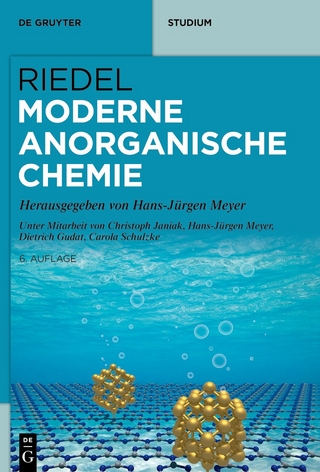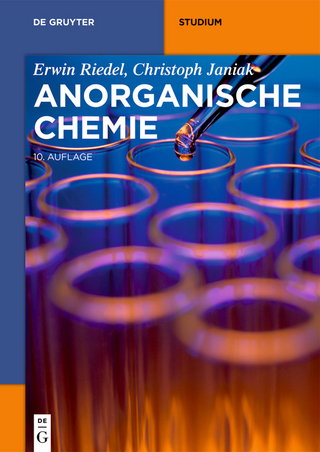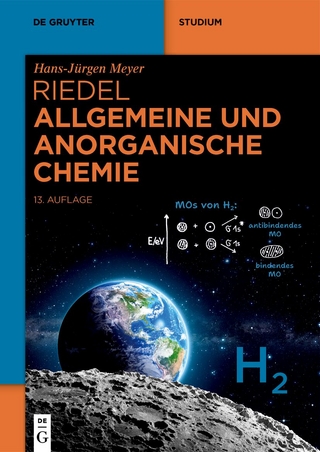Luminescent and Photoactive Transition Metal Complexes as Biomolecular Probes and Cellular Reagents
Seiten
2015
|
2015
Springer Berlin (Verlag)
978-3-662-46717-6 (ISBN)
Springer Berlin (Verlag)
978-3-662-46717-6 (ISBN)
The series Structure and Bonding publishes critical reviews on topics of research concerned with chemical structure and bonding. The scope of the series spans the entire Periodic Table and addresses structure and bonding issues associated with all of the elements. It also focuses attention on new and developing areas of modern structural and theoretical chemistry such as nanostructures, molecular electronics, designed molecular solids, surfaces, metal clusters and supramolecular structures. Physical and spectroscopic techniques used to determine, examine and model structures fall within the purview of Structure and Bonding to the extent that the focus is on the scientific results obtained and not on specialist information concerning the techniques themselves. Issues associated with the development of bonding models and generalizations that illuminate the reactivity pathways and rates of chemical processes are also relevant.
The individual volumes in the series are thematic. The goal of each volume is to give the reader, whether at a university or in industry, a comprehensive overview of an area where new insights are emerging that are of interest to a larger scientific audience. Thus each review within the volume critically surveys one aspect of that topic and places it within the context of the volume as a whole. The most significant developments of the last 5 to 10 years should be presented using selected examples to illustrate the principles discussed. A description ofthe physical basis of the experimental techniques that have been used to provide the primary data may also be appropriate, if it has not been covered in detail elsewhere. The coverage need not be exhaustive in data, but should rather be conceptual, concentrating on the new principles being developed that will allow the reader, who is not a specialist in the area covered, to understand the data presented. Discussion of possible future research directions in the area is welcomed. Review articles for the individual volumes are invited by the volume editors.
Readership: research scientists at universities or in industry, graduate students
Special offer
For all customers who have a standing order to the print version of Structure and Bonding, we offer free access to the electronic volumes of the Series published in the current year via SpringerLink.
The individual volumes in the series are thematic. The goal of each volume is to give the reader, whether at a university or in industry, a comprehensive overview of an area where new insights are emerging that are of interest to a larger scientific audience. Thus each review within the volume critically surveys one aspect of that topic and places it within the context of the volume as a whole. The most significant developments of the last 5 to 10 years should be presented using selected examples to illustrate the principles discussed. A description ofthe physical basis of the experimental techniques that have been used to provide the primary data may also be appropriate, if it has not been covered in detail elsewhere. The coverage need not be exhaustive in data, but should rather be conceptual, concentrating on the new principles being developed that will allow the reader, who is not a specialist in the area covered, to understand the data presented. Discussion of possible future research directions in the area is welcomed. Review articles for the individual volumes are invited by the volume editors.
Readership: research scientists at universities or in industry, graduate students
Special offer
For all customers who have a standing order to the print version of Structure and Bonding, we offer free access to the electronic volumes of the Series published in the current year via SpringerLink.
Molecular Design of Novel Classes of Luminescent Transition Metal Complexes and Their Use in Sensing, Biolabeling and Cell Imaging.- Phosphorescent Iridium(III) Complexes for Bioimaging.- The Photochemistry of Transition Metal Complexes and Its Application in Biology and Medicine.- Long Wavelength Phototriggering: Ruthenium Based Caged Compounds.- Photo-Controlled Release of NO and CO with Metal Complexes.- Strongly Phosphorescent Transition Metal Complexes with N-Heterocyclic Carbene Ligands as Cellular Probes.- Time-Resolved Emission Imaging Microscopy Using Phosphorescent Metal Complexes: Taking FLIM to New Lengths
| Erscheint lt. Verlag | 13.7.2015 |
|---|---|
| Reihe/Serie | Structure and Bonding |
| Zusatzinfo | IX, 260 p. 204 illus., 57 illus. in color. |
| Verlagsort | Berlin |
| Sprache | englisch |
| Maße | 155 x 235 mm |
| Gewicht | 552 g |
| Themenwelt | Naturwissenschaften ► Chemie ► Anorganische Chemie |
| Schlagworte | Bioimaging probes • Cell imaging • Long wavelength phototriggering • Luminescent transition metal complexes • Near-infrared excitation • Phosphorescent metal complexes • photodynamic therapy • Photosensitization • Ruthenium polypyridines • Time-resolved emission imaging microscopy |
| ISBN-10 | 3-662-46717-8 / 3662467178 |
| ISBN-13 | 978-3-662-46717-6 / 9783662467176 |
| Zustand | Neuware |
| Haben Sie eine Frage zum Produkt? |
Mehr entdecken
aus dem Bereich
aus dem Bereich




